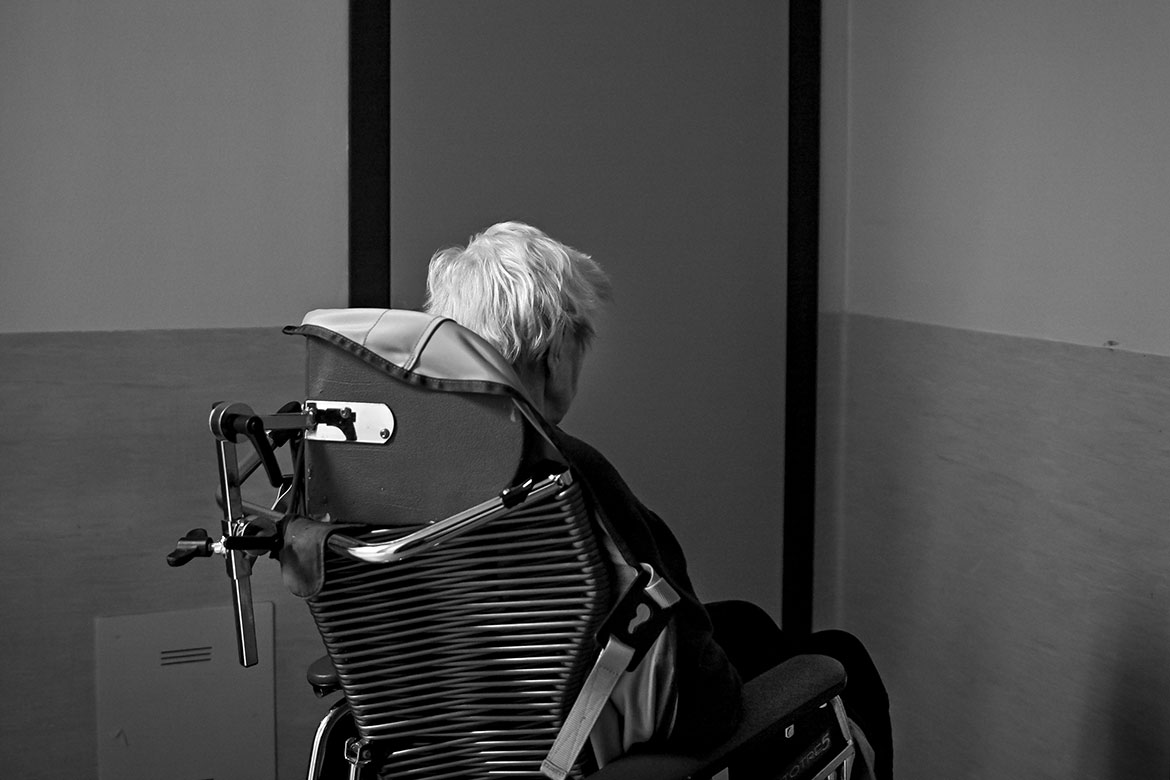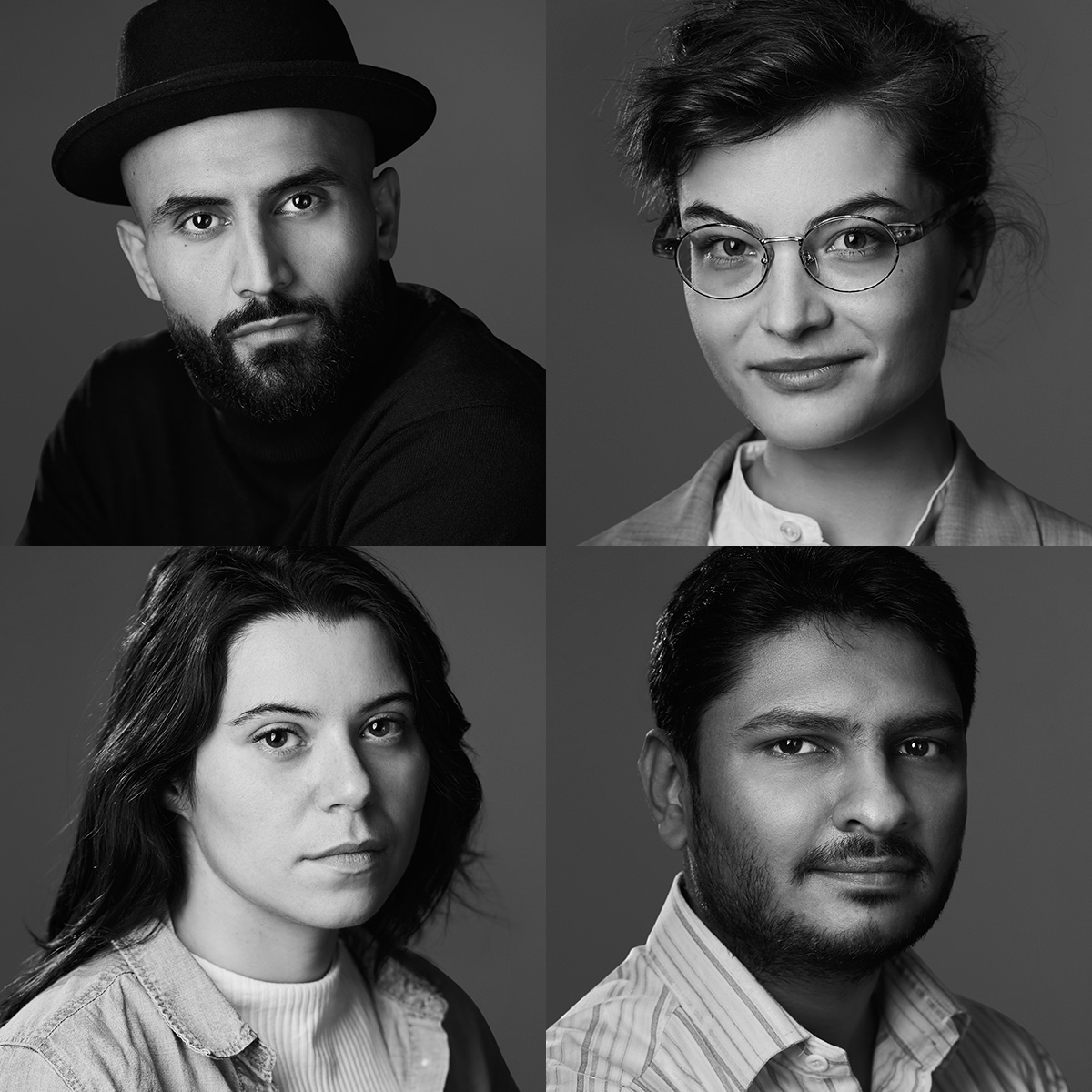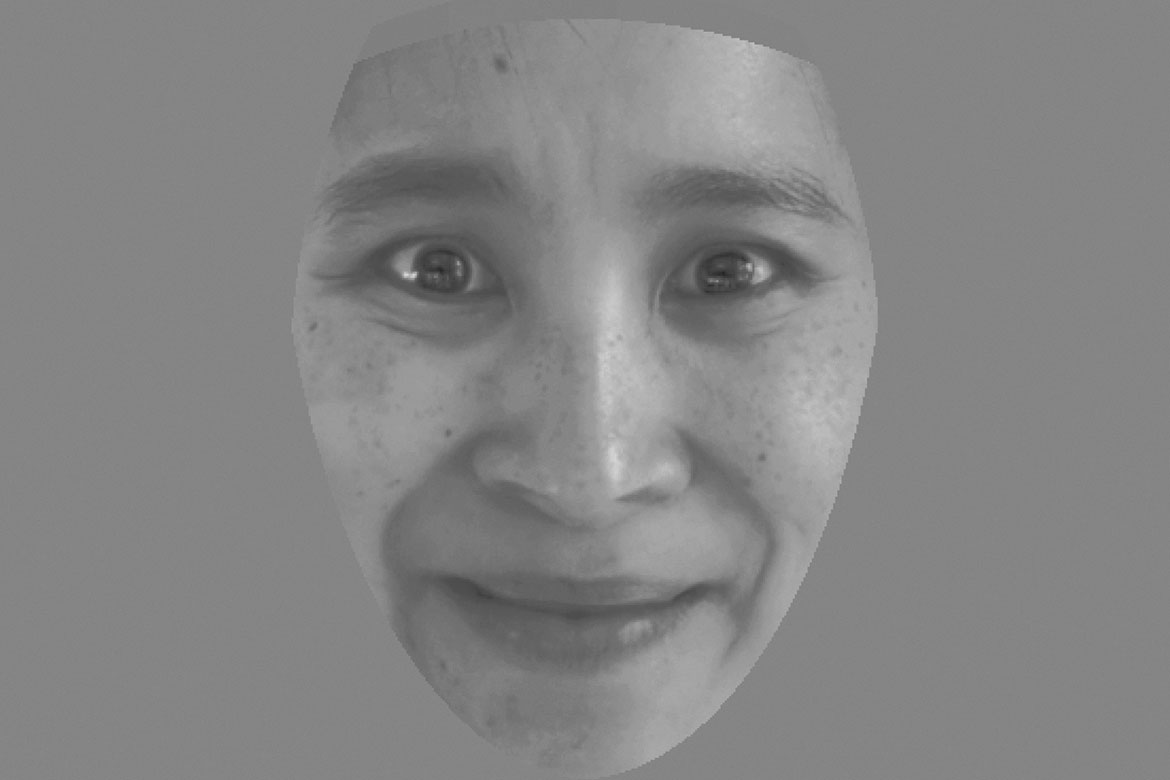Ethics
The many faces of human dignity
The concept of ‘human dignity’ can determine incontrovertible rules for what may not be done to a human being. But it is often also invoked for personal gain, or applied problematically. We take a closer look.

A retirement home during the lockdown, when people were no longer allowed any visitors and sometimes died alone. Medical ethicist Tanja Kroes regards this as a crass violation of their human dignity. | Image: Francesco Cocco/contrasto
Tanja Krones is the Executive Secretary of the Clinical Ethics Committee of the University Hospital of Zurich. She was often in the media spotlight during the past two years of the pandemic, offering insights into the excess work falling on nursing staff, drawing attention to the different ways in which the pandemic affected people depending on their social background, and criticising the so-called ‘silent triage’ by which elderly people in retirement homes were no longer admitted to ICUs when they caught the coronavirus. Issues around living and dying with dignity are part of Krone’s everyday work.
Protection against your own desires
In philosophical terms, Krones is a pragmatist. For her, the concept of human dignity in nursing care has to be tested time and again in concrete terms. She offers an example: During the first wave of Covid-19, many nursing homes refused to allow people to visit their parents or grandparents for several months. Some of the home residents were literally locked in their rooms and isolated – for their own protection, it was said. “That meant people dying alone, which was a crass violation of human dignity”, says Krones. “The fundamental needs of vulnerable people were simply disregarded”.
Having to die alone is difficult to balance against the need to minimise risks. For Krones, protecting life against the will of those who do not want such protection is essentially taking a paternalistic attitude that is unjustifiable. It means denying people their basic human needs in existential situations. Krone’s criticism of how nursing homes behaved during the pandemic is based not least on the concept of human dignity. “It remains a very powerful category in practice”, she says. “It sensitises our moral ‘muscles’ and helps us to focus more clearly on what is simply not admissible”.
Balancing freedoms
Philosophers have been discussing the concept of human dignity for over 2,000 years. Cicero, one of the most famous thinkers of Ancient Rome, was the first to present an unambiguous definition in his work De Officiis in 44 B.C. He was inspired by the Greek Stoics of earlier times and believed that dignitas hominis, general human dignity, belongs to all people because they possess reason. It is this factor, he said, that distinguishes humans from the animal world. He essentially disassociated the concept of dignity from a person’s position in public life, developing instead an egalitarian concept of dignity for the first-ever time as something that is due to everyone in equal measure.
Over one and a half millennia later, Immanuel Kant defined dignity as an absolute value in his Groundworks for the metaphysics of morals of 1785. Dignity alone, he claimed, distinguishes a human being as a rational, moral being. Unlike relative values – e.g., commercial goods – it has no price and cannot be traded. According to Kant, the precondition for human dignity is autonomy, which in turn requires human reason.
But what do we understand by human dignity today? Who is entitled to it, and what rights derive from it? Christoph Halbig is a professor of general ethics at the University of Zurich who has worked intensively with the concept and its philosophical derivations. For him, it does not primarily encompass rights to well-being or status, but is expressed most of all in the form of rights of defence. These include the right not to be humiliated, tortured or physically injured.
“Torture in every case violates human dignity; it cannot be justified by being balanced against any other considerations”, says Halbig. “It is unlike individual interests, such as maintaining direct contact with customers in a shop – something that was sacrificed temporarily for the justifiable reason of protecting our health during the pandemic”. But by no means does every morally questionable act of harm amount to a violation of human dignity. He explains this by means of an example: “If I deliberately step on your foot, it might hurt and might injure your state of well-being; but it is far removed from violating your human dignity”.
Halbig believes that the concept of human dignity became so dominant in the debates around the Covid-19 pandemic that it actually got in the way of properly weighing up different categories that were also relevant, e.g., people’s interests, their welfare and their right to freedom: “When opponents of vaccination claim that their human dignity prevents them from having to be vaccinated, they are instrumentalising the concept for private purposes”. To be sure, it is important to consider when the state should be entitled to ‘violate’ our right to the integrity of our own bodies, he says. But in the case of vaccination sceptics, the problem “is about weighing up different dimensions of freedom”, says Halbig, meaning that “during a global pandemic, the state has to reconsider the balance amongst our different freedoms in order to protect the population”.
Active euthanasia in the name of dignity
Heinz Rüegger is a theologian, ethicist and gerontologist who for many years has been engaging with the concept of dignity in old age. In his publications, he likes to refer to Cicero’s egalitarian, normative understanding of dignity: “Dignity is what distinguishes people as human beings – regardless of whether they are criminal, weak or suffering from dementia. That is why it often demands counterintuitive behaviour from us”. In other words, even a terrorist who commits murder may not lose his human dignity. He may not be tortured, even if this might intuitively seem justified.
Rüegger has observed various attempts to redefine this unconditionality since the 1990s and to replace it instead with an empirical concept of dignity. This became apparent, for example, when Victor Ruffy, a member of the Swiss National Council, invoked the concept of human dignity to justify immunity from prosecution for those actively involved in euthanasia. His argument was simple: if a patient’s dignity is severely impaired because of a serious illness, then active euthanasia ought to be permissible.
Rüegger is not convinced. “As soon as politicians start to employ an empirical concept of dignity that is dependent on external factors, it becomes very dangerous”, he says. “This is because vulnerable people are usually the first to fall by the wayside, outside the protective concept of human dignity”. This protection, he says, has four categories: the protection of life and limb, the protection of autonomy, the protection of one’s fundamental rights, and the right to be treated with respect.
In the current discussion about the ageing of society and the rapid increase in dementia, Rüegger once more recognises a tendency towards treating dignity as an empirical concept. Just because a person’s behaviour might appear ‘undignified’ in the eyes of outsiders – for example, because they are incontinent or lose their physical or mental autonomy – this is no reason to deny them their dignity. “Being human also always means being a burden to others”, he says.
Help in no-go situations
But for Halbig, any absolutist concept of dignity is similarly unsatisfactory. “It would be dogmatic, it could at best be justified theologically, and ultimately it would constitute merely an assertion”, he says. Representatives of the philosophy of nihilism have long criticised the lack of clarity as to what the term ‘dignity’ actually means, and would prefer to abolish it. Halbig does not want to go that far, but he, too, would like to see a more focused interpretation of the concept: “Increasingly, we have to ask ourselves what the normative core of human dignity comprises, and then derive from this the criteria for asking to which entities it might meaningfully be applied”.
Krones, as ever the pragmatist, has recently observed a tendency to instrumentalise human dignity as a means for shutting down the discourse. But the concept retains its topicality, and she too has little sympathy for nihilistic efforts to annul it: “What would the alternative be? The concept is firmly established”, she insists, “both historically and culturally, and we have internalised it over generations”. That is why, she says, it can still be invoked in ‘no-go’ situations, used to mobilise powerful forces, and called upon to fight injustice.




